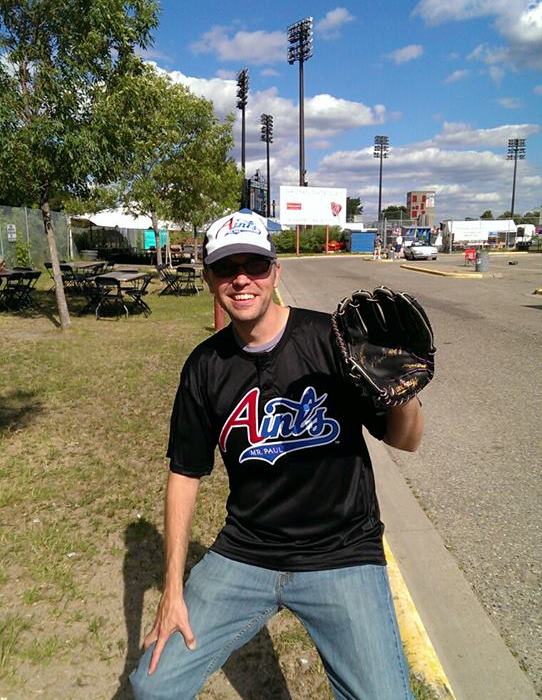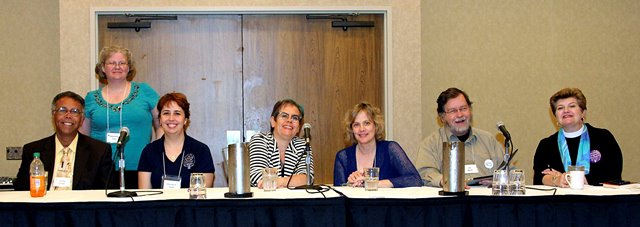By Eric Jayne
 Now that our second annual regional conference and Mr. Paul Aints game weekend is behind us, I’ve been able to take a deep breath and remind myself why I volunteer so much of my time and energy toward the cause of atheism. I recognize that there are many self-identified atheists in the United States who seem to be getting along just fine without actively supporting atheism. They take no interest in supporting atheist organizations and some even complain that atheist activism is an unfavorable endeavor on par with religious proselytizing. So then why do I and others do it? Why do I make myself vulnerable by publicly proclaiming my atheism? Is atheism really worth supporting? To put it more simply, why am I an atheist activist?
Now that our second annual regional conference and Mr. Paul Aints game weekend is behind us, I’ve been able to take a deep breath and remind myself why I volunteer so much of my time and energy toward the cause of atheism. I recognize that there are many self-identified atheists in the United States who seem to be getting along just fine without actively supporting atheism. They take no interest in supporting atheist organizations and some even complain that atheist activism is an unfavorable endeavor on par with religious proselytizing. So then why do I and others do it? Why do I make myself vulnerable by publicly proclaiming my atheism? Is atheism really worth supporting? To put it more simply, why am I an atheist activist?
In addressing these questions, I was compelled to first look back to my childhood, when I was brought up in an evangelical Christian home. It was a fine childhood overall but I remember getting unsatisfactory answers to questions about God’s origin, power, and goodness. I remember the mental anguish I had in trying to make sense of Sunday school lessons teaching about the promise of eternal damnation for having incorrect beliefs. I remember the terrified feeling of thinking about my adult brother—fourteen years older than me—going to hell since he didn’t join the rest of our family at church.
Experiencing this intellectual dishonesty and fear-based indoctrination was a good reason to leave the church and even the religion altogether, but is that reason enough to become an atheist activist? Maybe, but just to be sure here are a few more reasons I considered.
Atheists are marginalized in society. This marginalization is indicated not only by copious amounts of anecdotal evidence, but also through polls and comprehensive research findings that include studies from the University of Minnesota and the University of British Columbia. The Minnesota Atheists’ brand of positive atheism in action—with philanthropic community outreach events and our self-promoting Mr. Paul Aints baseball game—helps to educate others about our high regard for happiness and well-being while dispelling rumors that we’re a bunch of nihilistic hedonists.
Our society is encumbered by the whims and authority of a privileged religious majority. It is incredibly discouraging that many of our elected lawmakers and popular media correspondents invoke their God and their Bible to shape public policy in various domains like LGBT equality, women’s reproductive health, and embryonic stem cell research. Fortunately, we have a number of atheist-friendly organizations that work together to address the pernicious theocratic elements in our lawmaking institutions and ethnocentric narratives manufactured throughout the media.
Atheism paves a path with rewards of clarity and genuine spirituality. Unlike my experience as a Christian, as an atheist I have been able to accurately understand a lot about the universe and life on earth. Following the evidence and learning about mind-blowing scientific discoveries, which are awesomely spiritual, is something that I no longer need to square with Bible teachings. I don’t go out of my way to “proselytize” atheism but I don’t hesitate to explain how atheism has helped launch a more authentic and honest worldview.
Atheists are social creatures just like people in religious sects. I feel honored that I have the opportunity to help continue and build on the fantastic work of the Minnesota Atheists organization, which provides an important outlet for freethinkers to talk without restraint and to socialize with other friendly freethinkers in a variety of ways.
Progress is being made. At least it seems that way. As I pointed out earlier, atheists are marginalized in our society, but it seems as though it’s less so today than even a couple years ago. I could share my own positive experiences of coming out as an atheist to family, friends, and colleagues at work. Or I could point to the significant decrease in complaints and threats related to this year’s conference and baseball game compared to last year’s. But these are just anecdotes. As noted in George Kane’s article in this month’s newsletter, the recent Global Index of Religiosity and Atheism shows that those who identified as “religious” went down from 73 percent to 60 percent since 2005. Moreover, the index found that self-identified atheists went up from one percent to five percent. Having more people shake off their religious identity while increasing the number of self-identified atheists shifts power away from those with a narrow, religious-based agenda. Without atheist activism this kind of progress would likely not have happened as quickly.
Neither atheist nor atheism are four-letter words. These are perfectly fine words that nicely explain non-belief in God or gods. Through positive and friendly atheist activism, I want to help make these words more accepted and understood so that everyone who is without theism (i.e. a-theism) can feel as free to claim an atheist identity as a Bible-believer claims a Christian identity. This is not only important for individual comfort and pride but also for continued progress on the secular front on a larger level.
I am proud and honored to have the opportunity to funnel my activism through Minnesota Atheists. My colleagues on the board, Meetup leaders, and many other members in the organization have been wonderful friends, teachers, partners, and motivators. After helping lead the efforts for two billboard campaigns (so far), two regional conferences (so far), two atheist-themed baseball games (so far), several community-based volunteer events, debaptisms, and numerous book club discussions, I am certain, now more than ever, of why I am an atheist activist: Because it is important, fun, rewarding, and markedly successful.


